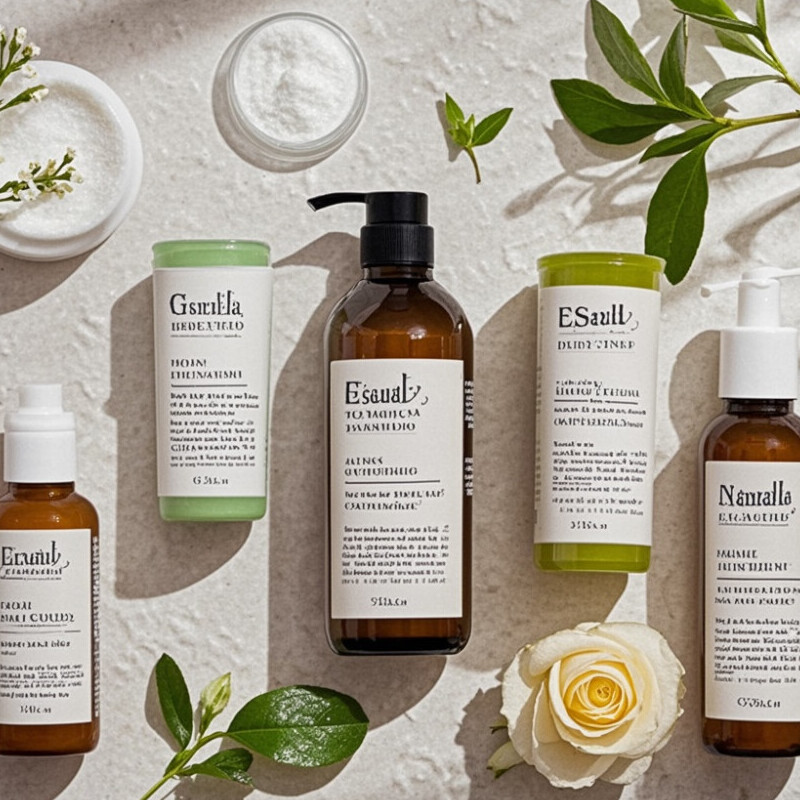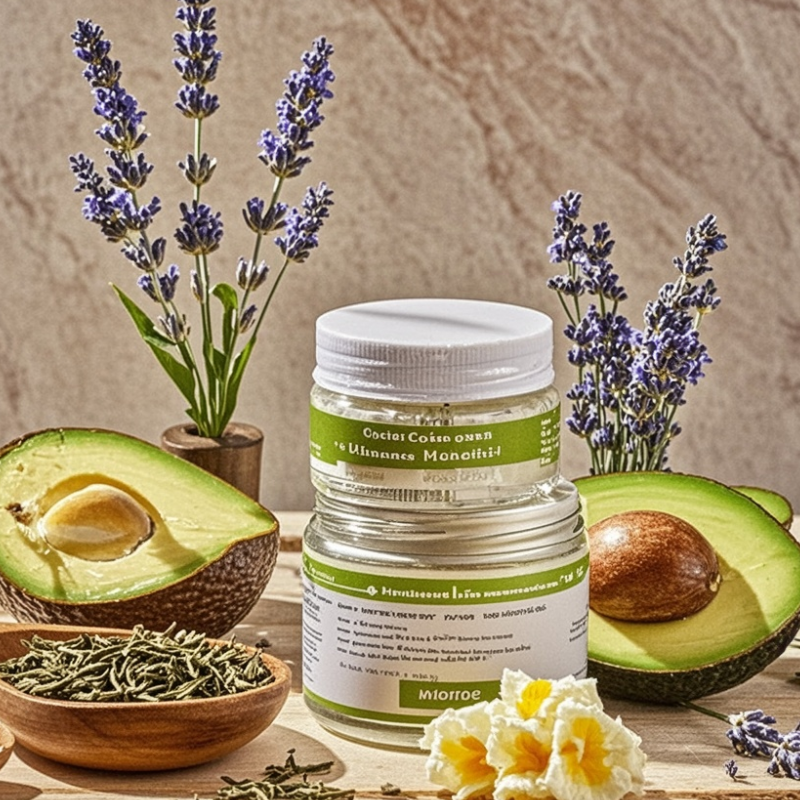Unpacking the Truth: Understanding Natural Skincare Products.

Defining what ‘natural’ means in skincare
Deciphering “Natural” in Skincare: A Journey Beyond Marketing Buzzwords
The term “natural” in skincare has become a ubiquitous marketing buzzword, often used to evoke images of pure, wholesome ingredients and a gentle approach to beauty. However, the meaning of “natural” can be surprisingly complex and often lacks a clear, standardized definition. This exploration will delve into the nuances of “natural” in skincare, separating marketing claims from scientific evidence and empowering you to make informed choices.
The Allure of “Natural”
The appeal of “natural” skincare lies in its association with:
– Purity: A perception of ingredients derived from plant and mineral sources, free from synthetic chemicals and artificial additives.
– Gentleness: The belief that natural ingredients are inherently gentler on the skin and less likely to cause irritation or allergic reactions.
– Sustainability: A connection to environmentally friendly practices and a reduced impact on the planet.
The Reality of “Natural”
While the concept of “natural” skincare is appealing, the reality is more nuanced:
– Lack of Regulation: There are no universally recognized or enforced standards for what constitutes “natural” in skincare. This allows companies to use the term loosely, even if their products contain synthetic ingredients or undergo significant processing.
– Synthetic vs. Natural: The distinction between synthetic and natural isn’t always clear-cut. Many synthetic ingredients are derived from natural sources but undergo modifications for stability, effectiveness, and safety.
– Potential for Allergies and Irritation: Even natural ingredients can cause allergic reactions or irritation, especially for sensitive skin. Some natural extracts can be potent and require careful handling.
– Sustainability Concerns: The sourcing and production of natural ingredients can have environmental impacts, including deforestation, water pollution, and unsustainable harvesting practices.
Beyond the Buzzwords: What to Look For
Instead of solely relying on the label “natural,” consider these factors when choosing skincare products:
– Ingredient Transparency: Look for brands that clearly list all ingredients, including botanical extracts, synthetic compounds, and preservatives.
– Scientific Evidence: Research the ingredients and their potential benefits and risks, considering scientific studies and reputable sources like the National Institutes of Health (NIH) and the Environmental Working Group (EWG).
– Ethical Sourcing: Choose brands that prioritize sustainable practices, ethical sourcing, and responsible harvesting of natural ingredients.
– Personal Sensitivity: Pay attention to your own skin’s response to different ingredients and choose products that are well-tolerated and effective for your specific needs.
A Holistic Approach to Skincare
A truly holistic approach to skincare goes beyond simply focusing on “natural” ingredients. Consider these factors:
– Lifestyle: A healthy diet, adequate hydration, and sufficient sleep are crucial for radiant skin.
– Sun Protection: Protect your skin from harmful UV rays with sunscreen, hats, and protective clothing.
– Stress Management: Chronic stress can negatively impact skin health. Engage in stress-reducing activities like exercise, meditation, or yoga.
– Professional Consultation: Consult with a dermatologist or skincare professional for personalized recommendations and treatment plans.
Conclusion: Informed Choices for Radiant Skin
The term “natural” in skincare is often used as a marketing tool, but it lacks a clear definition and can be misleading. Instead of solely relying on this label, prioritize transparency, scientific evidence, ethical sourcing, and personal sensitivity when choosing skincare products. Remember that a holistic approach to skincare, encompassing healthy lifestyle choices, sun protection, stress management, and professional consultation, is key to achieving and maintaining radiant skin.
The science behind natural skincare ingredients

The Science Behind Natural Skincare Ingredients: Unveiling Nature’s Power
The world of natural skincare is brimming with ingredients promising to unlock radiant, healthy skin. But beyond the marketing buzzwords, what does science say about their effectiveness? This exploration delves into the science behind popular natural skincare ingredients, exploring their mechanisms of action and the evidence supporting their benefits.
Antioxidants: Fighting Free Radical Damage
– Key Players: Green tea, vitamin C, grape seed extract, rosemary extract.
– Mechanism: Antioxidants neutralize free radicals, unstable molecules that damage skin cells, leading to premature aging, wrinkles, and hyperpigmentation. [1][4]
– Evidence: Studies show that topical application of antioxidants can reduce oxidative stress, improve skin elasticity, and protect against sun damage. [1][4]
Anti-Inflammatories: Soothing Irritated Skin
– Key Players: Aloe vera, chamomile, calendula, lavender.
– Mechanism: Anti-inflammatory ingredients reduce redness, swelling, and irritation, calming sensitive skin and promoting healing. [1][4]
– Evidence: Research supports the use of these ingredients for conditions like eczema, acne, and sunburn, demonstrating their ability to soothe inflammation and promote skin repair. [1][4]
Hydrators: Restoring Moisture Balance
– Key Players: Aloe vera, hyaluronic acid, coconut oil, jojoba oil, shea butter.
– Mechanism: Hydrators attract and retain moisture, plumping the skin, reducing dryness, and improving elasticity. [1][4]
– Evidence: Studies show that these ingredients enhance skin hydration, improve barrier function, and reduce transepidermal water loss (TEWL), leading to softer, smoother skin. [1][4]
Skin Barrier Support: Protecting and Strengthening
– Key Players: Ceramides, fatty acids, botanical oils.
– Mechanism: These ingredients help rebuild and strengthen the skin’s protective barrier, reducing sensitivity, preventing moisture loss, and protecting against environmental aggressors. [4]
– Evidence: Research suggests that incorporating these ingredients into skincare routines can improve skin barrier function, reduce dryness, and enhance overall skin health. [4]
Brightening Agents: Even Skin Tone and Reduce Hyperpigmentation
– Key Players: Licorice root extract, bearberry extract, kojic acid, vitamin C.
– Mechanism: These ingredients inhibit melanin production, helping to fade dark spots, reduce hyperpigmentation, and even out skin tone. [4]
– Evidence: Studies demonstrate the effectiveness of these ingredients in achieving a more luminous and balanced complexion. [4]
Anti-Aging: Boosting Collagen and Reducing Wrinkles
– Key Players: Retinol (derived from rosehip oil), peptides (from plant proteins), coenzyme Q10 (from algae).
– Mechanism: These ingredients stimulate collagen production, reduce the appearance of fine lines and wrinkles, and promote skin firmness. [4] P0
– Evidence: Research indicates that regular use of skincare products containing these ingredients can contribute to a more youthful and revitalized appearance. [4]
The Importance of Quality and Research
While the science behind natural skincare ingredients is promising, it’s crucial to choose quality products from reputable brands that prioritize research and evidence-based formulations. Look for products with clear ingredient lists, scientific backing, and ethical sourcing practices.
Conclusion: A Scientific Approach to Natural Skincare
Natural skincare ingredients offer a wealth of potential benefits for healthy, radiant skin. By understanding the science behind their mechanisms of action and choosing products backed by research, you can harness the power of nature for a more effective and informed skincare routine.
Benefits of choosing natural over synthetic products
Choosing natural products over synthetic ones offers several advantages, impacting both personal well-being and the environment.
Environmental Benefits:
– Reduced Pollution: Natural products often have a lower environmental footprint compared to synthetic alternatives. Their production typically involves fewer chemicals and processes that contribute to air, water, and soil pollution.
– Sustainable Resources: Many natural products are derived from renewable resources like plants and minerals, promoting sustainable practices. This contrasts with synthetic products that often rely on finite resources like fossil fuels.
– Biodegradability: Natural products are generally biodegradable, breaking down naturally and minimizing waste accumulation. Synthetic products, on the other hand, can persist in the environment for extended periods, leading to pollution and ecological imbalances.
Health Benefits:
– Fewer Chemicals: Natural products often contain fewer synthetic chemicals, reducing the risk of exposure to potentially harmful substances. This is particularly relevant for products used directly on the body, such as skincare and cosmetics.
– Potential for Healthier Ingredients: Natural products can contain beneficial compounds like antioxidants, vitamins, and minerals that contribute to overall health and well-being. Some studies suggest that natural products may have positive effects on skin health, digestion, and immune function.
– Reduced Allergies and Sensitivities: Natural products are less likely to trigger allergies or sensitivities compared to synthetic alternatives, making them a safer choice for individuals with sensitive skin or other health concerns.
Ethical Considerations:
– Animal Welfare: Natural products are often cruelty-free, avoiding the use of animal testing and exploitation.
– Fair Trade and Sustainable Sourcing: Choosing natural products sourced from ethical and sustainable practices supports fair labor conditions and environmental conservation.
Important Considerations:
– Not All Natural Products Are Created Equal: It’s crucial to research the origin, processing, and potential contaminants of natural products to ensure their quality and safety.
– Availability and Affordability: Natural products may not always be readily available or affordable compared to synthetic alternatives.
– Potential for Allergic Reactions: While generally safer, natural products can still cause allergic reactions in some individuals.
In conclusion, choosing natural products over synthetic ones offers numerous environmental, health, and ethical benefits. However, it’s important to consider the individual product, source, and potential risks before making a decision.
Personalized Skincare Regimens: Exploring and Crafting Your ApproachHow

DIY natural skincare recipes and their effectiveness
DIY natural skincare recipes offer a tempting alternative to store-bought products, promising a more natural and budget-friendly approach to skincare. While many recipes utilize ingredients readily available in your kitchen, it’s crucial to understand their effectiveness and potential limitations.
Effectiveness of DIY Natural Skincare Recipes:
– Gentle Exfoliation: Recipes featuring ingredients like oatmeal, brown sugar, and rice flour provide gentle exfoliation, removing dead skin cells and revealing smoother, brighter skin. [1][2][3][4]
– Hydration and Nourishment: Honey, coconut oil, and aloe vera are known for their hydrating and nourishing properties, leaving skin feeling soft and supple. [1][2][3][4]
– Antioxidant and Anti-Inflammatory Benefits: Ingredients like green tea, blueberries, and ginger are rich in antioxidants, helping to protect skin frolm environmental damage and inflammation. [1][3][4]
Limitations of DIY Natural Skincare Recipes:
– Limited Evidence: While anecdotal evidence suggests the effectiveness of some DIY recipes, scientific research on their efficacy is often limited.
– Potential for Irritation: Natural ingredients can still cause irritation or allergic reactions, especially for sensitive skin. Patch testing before applying any new recipe is crucial.
– Shelf Life and Preservation: Homemade skincare products often have a shorter shelf life than commercially produced ones and require proper storage and preservation techniques to prevent microbial growth.
– Consistency and Formulation: Achieving the desired consistency and formulation for a DIY recipe can be challenging, potentially impacting its effectiveness.
– Individual Skin Needs: What works for one person may not work for another, as skin types and concerns vary.
Examples of Common DIY Natural Skincare Recipes:
– Honey and Oatmeal Face Mask: This soothing mask helps to calm irritated skin and reduce inflammation. [3]
– Coconut Oil Body Scrub: This luxurious scrub exfoliates dead skin cells and leaves skin feeling silky smooth. [3]
– Green Tea Toner: This refreshing toner helps to fight free radicals and protect skin from environmental damage. [3]
Conclusion:
DIY natural skincare recipes can be a fun and rewarding way to experiment with skincare. However, it’s essential to approach them with a balanced perspective, acknowledging both their potential benefits and limitations. Researching ingredients, patch testing, and understanding proper preservation techniques are crucial for maximizing their effectiveness and minimizing potential risks. While some recipes may provide noticeable benefits, it’s important to remember that they may not be as potent or long-lasting as commercially produced products. Ultimately, the best approach to skincare is a personalized one that addresses individual needs and concerns.

This article on natural skincare really highlights the complexity behind the term “natural” and provides essential insights for making informed choices. I appreciate how it breaks down the difference between natural and synthetic ingredients and the common misconceptions surrounding “natural” skincare. It’s especially interesting to see how even natural ingredients can trigger allergic reactions or cause irritation. This brings up some questions:
1. Are there specific certifications or labels that consumers can look for when selecting genuinely natural and sustainably sourced products?
2. With DIY natural skincare, what are some best practices for preserving homemade recipes? Are there particular ingredients or techniques that help extend shelf life?
3. While the article mentions environmental concerns, I’m curious if there are any specific studies on the ecological impact of synthetic vs. natural ingredients in skincare. How do these findings influence sustainable choices in the industry?
Thank you for this informative piece—it’s empowering to understand these nuances and make choices that support both personal wellness and environmental health.